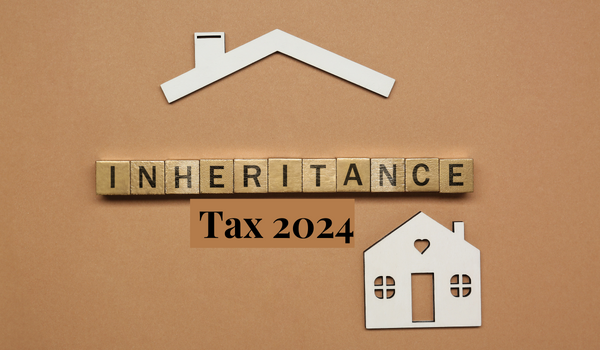In this article, you will get to know about the Inheritance Tax 2024: How Much is Inheritance Tax and What is Nil Rate Band? The IHT is a tax levied on the value of someone’s estate after they die; it essentially taxes the wealth you leave behind. The IHT is a way for the Government to collect taxes on the transfer of wealth from a deceased person to their beneficiaries. This tax raises government revenue and ensures a fairer distribution of wealth across generations. In 2024, the IHT is currently 40%. To know more about the Inheritance Tax 2024, what the nil rate band is, and more, continue browsing this article.
Contents
Inheritance Tax 2024
The inheritance tax rate will remain at 40% in 2024, and the amount inherited above the tax-free threshold will be taxed at this rate. The IHT discourages the accumulation of vast untaxed wealth passing down through generations. It aims to create a balance between inheritance and Government revenue needs.
The Inheritance Tax 2024 is only applied to the portion of the estate exceeding the nil rate band, which is currently 325K pounds, with an additional 175K pounds residence nil-rate band for certain situations. Various exemptions and reliefs are available, such as leaving money to charity or gifts made more than seven years before death. This is the tax that the UK Government collects from large estates.
Important links
There are no changes to the Inheritance Tax 2024 spring budget; the Government has previously announced a freeze on the nil rate band until Apr 2028. There are proposals for a future switch to a residence-based regime for inheritance tax applicable to non-domiciled individuals, which came into effect before Apr 2025.
How Much is Inheritance Tax?
The flat rate of 40% applies to the portion of an estate that is exceeding the tax-free threshold. The Inheritance Tax 2024 is a levy on the value of a deceased person’s estate after death, and it essentially taxes the wealth you inherit.

In 2024, the first 500K pounds wouldn’t be taxed, and the Inheritance Tax would apply to the remaining 100K pounds. In this case, the tax would be 40% of the 100K, which is 40K. However, it is important to note that Inheritance Tax can be complex, and there might be exemptions or reliefs depending on the situation.
What is the Nil Rate Band?
The Nil Rate Band is an essential concept of Inheritance Tax 2024; this is the tax-free threshold set by the Government. It represents the amount you can inherit without incurring inheritance tax, and in 2024, the nil rate band is frozen at 325K pounds.
The NRB aims to ensure that a certain level of inheritance can be passed on to beneficiaries without a significant tax burden. This helps families pass on a reasonable amount of wealth without taxation. It acts as a baseline for calculating the taxable amount within an estate.
The primary benefit of the Nil Rate Band is that it provides some financial security for beneficiaries. It allows for an inheritance to be used for living expenses or future goals without immediate tax implications. The intent behind the NRB is to strike a balance between encouraging wealth transfer within families and generating tax revenue for the Government.
However, it is important to note that the NRB is currently frozen, it wont increase with inflation. A residence mil-rate band is also available for some situations, allowing an additional tax-free amount for inherited property. The Inheritance Tax 2024 rules can be complex, so seeking professional advice is recommended for substantial inheritances.
Rules of Inheritance Tax
The Inheritance Tax 2024 denotes certain key rules in the UK that involve:
- A flat tax rate of 40% applies to the portion of an estate exceeding the tax-free threshold.
- The NRB is frozen at 325K pounds, which you can inherit without paying IHT. Residence NRB makes an additional 175K pounds allowance for passing on a property to direct descendants.
- Gifts made for more than 7 years before death are generally exempt from IHT.
- Some exemptions for certain types of assets include life insurance payouts paid directly to a beneficiary.
- You can leave everything to your spouse or civil partner tax-free.
- Leaving money to charity also reduces the estate’s value for IHT purposes.
These are some essential rules for Inheritance Tax 2024. The leading UK government portal will also provide a good starting point for understanding IHTR.